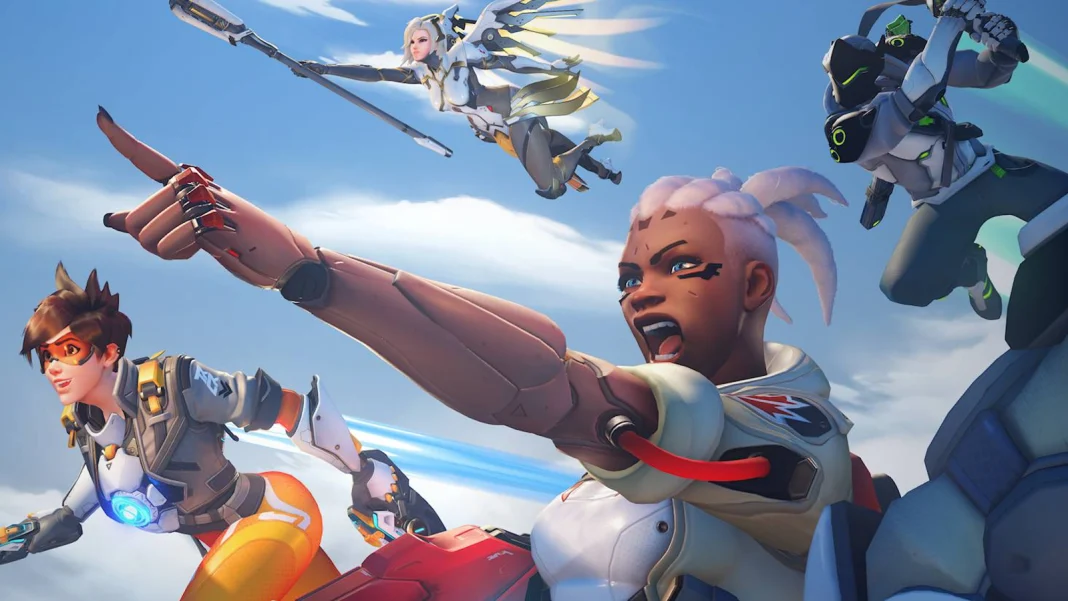Season 12 of Overwatch 2 has introduced a crucial update that appears to have significantly improved match balance, much to the satisfaction of its player base. The new Wave Respawn mechanic, an enhancement of the earlier Group Respawn feature, has been reported to reduce the frequency of one-sided matches by up to 8%, depending on the players’ rank and game mode. This change is being hailed as a considerable advancement in enhancing the overall fairness and enjoyment of the game.
A New Chapter in Overwatch 2
The twelfth season of Overwatch 2 commenced on 20 August, bringing with it a variety of updates, including the introduction of a new support hero, a fresh game mode, and a ranked reset in Competitive Play. However, the most consequential update in this season is the introduction of the Wave Respawn mechanic, a feature designed to ensure more balanced and competitive matches across all levels of play.
This new mechanic builds upon the Group Respawn system that was introduced in Season 7, functioning by synchronising the respawn times of players who die within a brief interval of one another. Specifically, if teammates are eliminated within a six-second window, they are resurrected together in a “wave,” rather than one by one. This approach encourages greater team cohesion and reduces the likelihood of a single lost skirmish snowballing into a match-ending defeat.
Impact on Gameplay
Early data from the first week of Season 12 suggests that the Wave Respawn feature has already had a significant impact on reducing the occurrence of one-sided matches, which has long been a concern among players. According to Overwatch 2 systems designer Gavin Winter, Quick Play matches have seen up to an 8% reduction in lopsided outcomes following the introduction of this mechanic. The effect is somewhat less pronounced at higher skill levels, but the overall trend indicates a healthier and more balanced gameplay experience for players across the board.
This reduction in one-sided matches is particularly noteworthy given the context of the ranked reset in Competitive Play, which typically results in a temporary increase in uneven matches as the system recalibrates player matchmaking ratings (MMRs). Contrary to expectations, this season has actually experienced a 5% decrease in one-sided matches compared to Season 11, highlighting the effectiveness of the Wave Respawn system.
Community Response and Future Outlook
The Overwatch 2 community has largely embraced the Wave Respawn mechanic, recognising its role in discouraging players from engaging in reckless, solo actions that often lead to swift defeats. By encouraging more cohesive team-based play and reducing the chances of a single mistake leading to a crushing loss, Wave Respawn has emerged as a critical component in enhancing the balance and overall enjoyment of the game.
While the feature is still relatively new, the early results suggest that it will continue to have a positive influence on the game’s dynamics. As players’ MMRs stabilise and the effects of the ranked reset diminish, it is anticipated that the benefits of Wave Respawn will become even more apparent.
Looking ahead, Blizzard Entertainment seems committed to exploring further innovations to sustain and enhance the appeal of Overwatch 2. The potential reintroduction of 6v6 gameplay, which has been discussed as a possible future update, indicates the developer’s intent to remain responsive to the community’s feedback and continuously improve the game. The success of the Wave Respawn mechanic may well serve as a model for future changes aimed at refining the balance and fairness of the game.
The introduction of the Wave Respawn mechanic in Season 12 of Overwatch 2 marks a significant development in the game’s approach to fostering competitive balance. By substantially reducing the incidence of one-sided matches, this feature has already proven to be a valuable addition to the game’s framework, particularly in a season characterised by a ranked reset.
As the Overwatch 2 community continues to adjust to this new mechanic, the long-term benefits are expected to become increasingly evident. Blizzard’s ongoing efforts to innovate and enhance the player experience, as demonstrated by the successful implementation of Wave Respawn, suggest that the future of Overwatch 2 will be shaped by a commitment to fairness, balance, and sustained engagement. With further updates and potential new features on the horizon, the game is poised to continue evolving in ways that resonate with both veteran players and newcomers alike.


